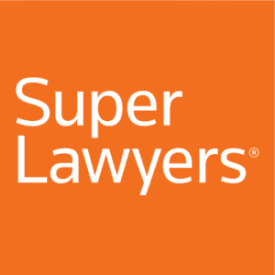Attorney Daniel Siegel Wins Landmark Pa. Superior Court Ruling Clarifying Philadelphia Fair Practices Ordinance (PFPO)
Attorney Daniel J. Siegel of the Law Offices of Daniel J. Siegel, LLC, appellate counsel for Najaea Jones, secured a significant victory before the Pennsylvania Superior Court in Jones v. Foods on First III, Inc. The court upheld a judgment in Ms. Jones’s favor on her claims of sexual and racial discrimination under the Pennsylvania Human Relations Act (PHRA), the Philadelphia Fair Practices Ordinance (PFPO), and 42 U.S.C. § 1981. Trial counsel was Stephanie Mensing of Mensing Law.
In a ruling that simplifies the process for discrimination claims, the Superior Court clarified that filing a complaint with the Pennsylvania Human Relations Commission (PHRC) is sufficient to meet the administrative exhaustion requirement for PFPO claims. This means that claimants are not required to file separately with the Philadelphia Commission on Human Relations (PCHR).
This decision is highly significant for employees and their counsel, as it removes unnecessary procedural hurdles, streamlines the path to justice, and reinforces protections against workplace discrimination based on race and sex. Thanks to Attorney Siegel’s advocacy, Ms. Jones’s filing with the PHRC alone was deemed adequate to pursue her PFPO claims.
Understanding the Philadelphia Fair Practices Ordinance (PFPO) and Exhausting Administrative Remedies
The Philadelphia Fair Practices Ordinance (PFPO) is a critical piece of legislation aimed at ensuring equal opportunities and protecting individuals from discrimination in employment, housing, and public accommodations within the city of Philadelphia. This ordinance is a powerful tool for combating discrimination based on race, ethnicity, sex, gender identity, sexual orientation, disability, and other protected characteristics. However, navigating the PFPO’s procedural requirements, particularly the concept of exhausting administrative remedies, can be complex.
The ordinance is enforced by the Philadelphia Commission on Human Relations (Philadelphia Commission), which investigates complaints and seeks to resolve disputes. Under the PFPO, individuals who believe they have been subjected to discrimination may file a complaint with the Philadelphia Commission. However, the PFPO also includes a provision that prohibits the Philadelphia Commission from accepting complaints if the same grievance has already been filed with the Pennsylvania Human Relations Commission (PHRC).
Key Takeaways from Najaea Jones v. Foods on First III, Inc.
The Superior Court clarified the requirements for exhausting administrative remedies under the PFPO. Here are the highlights:
- Filing with the PHRC May Be Sufficient: The court held that filing a complaint with the PHRC satisfies the administrative exhaustion requirement for PFPO claims. This means that individuals do not need to file a separate complaint with the Philadelphia Commission if they have already filed with the PHRC regarding the same conduct.
- Dual Filing Not Required: The court rejected the argument that individuals must file complaints with both the PHRC and the Philadelphia Commission to preserve their right to sue under the PFPO. Instead, the court interpreted the PFPO as allowing individuals to pursue claims in court after filing with the PHRC, as long as the claims relate to the same alleged discriminatory conduct.
- Statute of Limitations: The PFPO provides a two-year statute of limitations for filing a lawsuit, which begins to run after the administrative agency (e.g., the PHRC) issues a notice closing the case. This ensures that individuals have ample time to pursue their claims in court after the administrative process concludes.
Why This Matters
The court’s decision underscores the importance of understanding the procedural nuances of the PFPO. For individuals who experience discrimination, it simplifies the process by clarifying that filing with the PHRC is sufficient to preserve their rights under the PFPO. This eliminates the need for redundant filings and ensures that victims of discrimination can focus on seeking justice.
The Law Offices of Daniel J. Siegel, LLC represented Ms. Jones in her appeal to the Superior Court. Our office handles appellate matters and works with trial counsel to ensure the plaintiff receives justice. If you have an appellate matter, call us at 610-446-3457 or email us to set up a consultation with our office.






